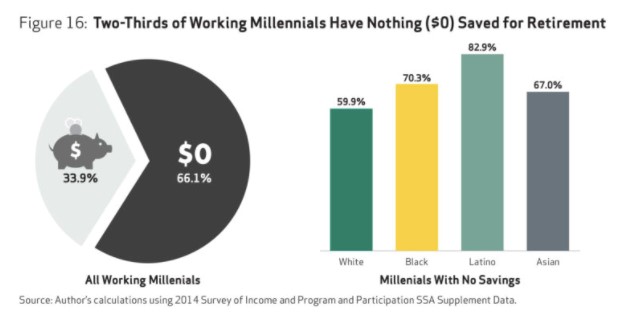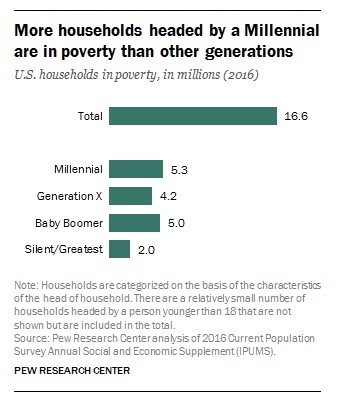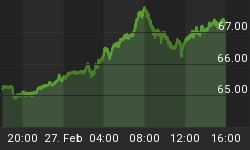Fear of Missing Out (FOMO) is a huge part of the Millennial psyche. But while that extends to everything that goes down on social media, this generation doesn’t seem to be worried about missing out on retirement funds.
Millennials—or Generation Y—are today’s late teens and twenty-somethings born in the 80s and 90s, and they number some 80 million people in the United States.
And because FOMO is the Millennial common denominator, the financial detours are numerous.
Thanks to the meteoric rise of social media advertising, Millennials have endless options for spending money, and they account for an estimated $1.3 trillion in annual consumer spending.
Half of Millennials have made unplanned purchases because of something they’ve seen on social media.
And half claim they spend more money on nights out than they do on rent or mortgage payments.
Some studies even suggest that nearly 70 percent of millennials experience FOMO when they can't attend something that their family or friends are attending.
FOMO rules their days and nights, but so does an apparent gut feeling that the world won’t exist in its present form by the time they retire.
According to the National Institute on Retirement Security, some 66 percent of Americans between the ages of 21 and 32 have nothing saved for retirement.

(Click to enlarge)
It also suggests that 95 percent of Millennials aren’t saving enough for retirement, and just over one-third participate in employer-sponsored retirement plans.
Exacerbating the situation, Millennials also face a higher life expectancy, lower income replacement from Social Security, and are less likely to have a traditional defined benefit pension. Related: Silicon Valley’s Billion Dollar IPOs
“This means Millennials must save significantly more than previous generations to maintain their standard of living in retirement,” the report says.
The March 2018 report is based on 2014 census data, so we’ll give it a wide berth, but if even 50 percent of the people that fall into this age group have zero saved up for retirement, the country might look like a very different place in 40 years.
But that’s exactly what Millennials are counting on.
Because they see limited economic prospects that prevent them from saving, they’re banking on social change. Or, as Salon put it: “Some Millennials aren’t saving for retirement because they don’t think capitalism will exist by then.”
It’s not a crazy notion for a generation that lives in poverty more than any other. A Pew Research poll from last September noted that “5.3 million of the nearly 17 million U.S. households living in poverty were headed by a Millennial”.

(Click to enlarge)
Millennial finances took a hit in the 2008/2009 financial crisis, and the high costs of education have also taken a toll.
According to a recent Bank of America survey, 16 percent now have savings of $100,000 or more, double the amount of young people who had saved that much in 2015.
But the bank warns us against thinking that Millennials are just bad with money: "Despite stereotypes of Millennials as being foolish with money and not long-term planners, they are actually behaving quite responsibly when it comes to money,” the report said.
Millennials aren’t as convinced that the status quo will remain unchanged in the, and they appear less inclined to make long-term decisions. And it’s not just because of the instant gratification habit honed by social media. Millennials see a world soon to be dominated by artificial intelligence—for better or worse— and a higher potential for instability and social change.
It’s not simply frivolous short-term thinking. They may see retirement funds as at risk either way. If the world gets darker, Millennials might end up being more self-sufficient.
By Michael Scott for Safehaven.com
More Top Reads From Safehaven.com:

















Give me one giant f'ing break. Having watched all my parent's acquaintances scramble over one another to buy flat screen TV's in the early 2000's despite being $50k in the hole to the credit card company, mortgaged to the gills and upside-down on their three cars per household. Just no. You don't get to pin this trend on millennials or social media. This is an American problem and it's not a new one either. Having the same generation that told us "go to college, you'll be guaranteed a good job" now tell us "don't spend any money and go into debt like I did because someone needs to pay for my social security and medicare" isn't just insulting it's downright disgusting.